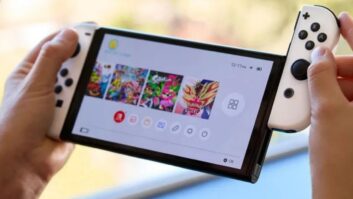Orlando, Fla. –
Research In Motion (RIM) used an early prototype of a touchscreen-only
smartphone to demonstrate key features of its planned BlackBerry 10 OS, but the
company vowed that it would not abandon phones with its signature hard
keyboards.
During the
company’s BlackBerry World event here, president/CEO Thorsten Heins said
BlackBerry 10 will also be offered on products with physical keyboards in the
future. “We make the best physical keypad in the world,” he said. “We know what
our strength is.”
The company also
unveiled a beta toolkit that developers can use to begin writing apps that will
run on both Android and BlackBerry 10 phones to encourage app development in
time for a BlackBerry 10 smartphone launch sometime later this year. The apps
would run on BlackBerry 10 smartphones and a next-generation PlayBook tablet
that would also run on the OS.
In other comments
at the event, Heins said the company is close to close to hiring a chief
marketing officer to deliver a consistent, unified message for the
next-generation OS in contrast to multiple messages used to promote current-generation
products.
In demonstrating
some of the key new OS features, Heins showed a new touchscreen keyboard with
large buttons and a modeling algorithm that promotes accurate typing by
learning where a user presses a particular key. The keyboard also recognizes
swiping gestures that can be used to pull up symbols and numbers and to
backspace.
The OS also uses
gestures to pull apps off to the side of the screen to expose other live apps
running underneath or to open another app.
Improved camera
functionality includes a “step-back-in-time” function. Users highlight a
specific area of a picture, such as closed eyes, to go back to a point in time
when the person’s eyes were open. The final image would show the eyes open but
keep the rest of the image unchanged.
Also at the event,
sales and marketing executive VP Patrick Spence said the company shipped 11.1
million devices worldwide in the first three months of 2012. That’s down from a
year-ago 13.2 million but equal to the company’s previously announced 11.1
million in the fourth quarter. The company’s first-quarter shipment exceeded the
more than the 8.9 million devices shipped by Motorola Mobility in the first
quarter.













